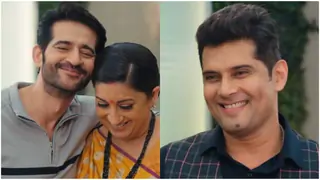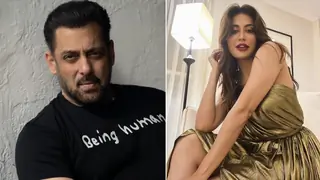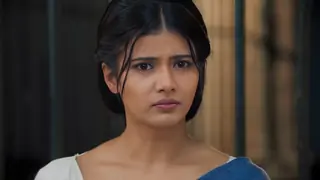Remembering S. D. Burman
– The Veteran Composer with a Magic Melody
By Dr. C. S. Srinivasan
In Hindi film music there is a great name that shines like the polestar forever. S.D.Burman born in 1906 in royal family of Tripura was known as a folk and light classical singer in A.I.R. Calcutta and had scored music for some Bengali films. He came to Bombay in the 1940's under the invitation of Subodh Mukherji,who was heading the Filmistan productions and Ashok Kumar,the great actor and started scoring music for Hindi films. His first film was Filmistan's Shikari released in 1946 which became a great hit with songs like Dol rahi hai naiya sung by Ashok Kumar. This was followed by Do Bhai in 1947 and Shabnam in 1949, both of which were also Filmistan productions and their music became hits with songs like Mera sundar sapna beet gaya ( Geetha Dutt in Do Bhai), Ye duniya roop ki chor(Shamshad Begum in Shabnam). Other Filmistan films with music by S.D.Burman were Munimji in1955 and Paying Guest in 1957.
Fascinated by the music given by S.D.Burman, Dev Anand started his own Production banner called Navketan and appointed S.D.Burman as its music Director whose films starting from Afsar in 1950 followed by Baazi(1951), Taxi Driver(1954), House No.44(1955), Funtoosh(1956), NauDo Gyarah(1957), Kala Pani(1958), Kala Bazar(1960), Prem Pujari(1970) became hits with lilting music. The magnum opus was Guide released in 1965 whose songs are popular even today.
Shakti films Aradhana released in 1969 with music by S.D.Burman and songs like Mere Sapno ki rani and Roop tera Mastana became a rage with music lovers and gave a boost to Kishore Kumar's image. The song Kahe ko Roye sung by S.D.Burman himself in the film won him national award. Another Shakti film with music by S.D.Burman was Anuraag in 1970.
S.D.Burman gave music for Bimal Roy's films like Devdas(1955), Sujata(1959) and Bandini(1963) whose songs like Anewaale(Devdas), Sun mere bandhu re and Jalte hain jiske liye(Sujata),O janewale and Mora gora ang(Bandini) became hits. The famous Director, Producer and actor Guru Dutt also took S.D.Burman as Music Director for his films like Pyaasa (1957) and Kagaz ke Phool (1959) whose songs were great hits and earned him awards also.
Chalti ka Naam Gaadi produced by Kishore Kumar and released in 1958 was a comedy film, which became famous for its songs like Haal kaisa hai janabka and Ik ladki bheegi bhaagi si scored by S.D.Burman.
Hrishikesh Mukherji's Abhiman released in 1973 with music by S.D.Burman won him national award for best music. The songs like Meet na Milare manka sung by Kishore Kumar and Piya Bina sung by Lata Mangeshkar became great hits. Hrishida also produced other films like Chupke Chupke and Mili with music by S.D.Burman.
S.D.Burman has scored the music for a total of 89 films in Hindi over a span of 30 years. He got the prestigious Padmashri award by the Govt. of India in 1973. Our present Prime Minister Shri Atal Behari Vajpayee who is also a poet is very fond of S.D.Burman's music and singing. The famous cricketer Sachin Tendulkar's first name is borrowed from Sachin Dev Burman as his father was very fond of his music.
S.D.Burman's son R.D.Burman who also became very famous as a Music Director later was assisting his father in music from his early days.
S.D.Burman was a contemporary of stalwarts like Anil Biswas, Naushad and C.Ramachandra and like them he had a strong classical base but his music was always trendy and fresh like morning dew. He worked with almost all singers and lyricists of his time. Even when Shankar Jaikishen and O.P.Nayyar were dominating the hindi film music scene, S.D.Burman's songs became equally popular because of their variety and melody. He was at home with solos( Chalri sajni from Bombaika babu,Khoya khoya chand from Kala Bazar, Ye duniya agar mil bhi jaye from Pyaasa, Waqt ne kiya from Kagaz ke phool), romantic duets(Haal kaisa hai janab ka from Chaltika naam gaadi,Choddo anchal from Paying Guest, Ankhonme kya ji from Naudo gyarah, Achha ji mai haari chalo from Kala Pani, Chand sa Mukhda from InsaanJag Utha) and semi-classical songs(Ghayal hiraniya from Munimji, Pawan diwani from Dr.Vidya, Nacheman mora and Pucho na kaise maine from Meri surat teri ankhen, Man mohan man me from Kaise kahun).
S.D.Burman has sung many bhajans, folk and light classical songs in Bengali(for many of which his wife Meera Dev Burman has written the lyrics) and Hindi which are his private compositions and not contained in films.
This great music personality attained his heavenly bliss on 31,October, 1975 but his songs are always remembered by the music lovers wherever they are. A new web site www.sdburman.net has been created by his fans recently which contains more information on his life and work. A book in Bengali titled "Bhati gang baiya" has also been written by Shyamal Chakrabarthy of Agartala containing detailed information on his life and work with rare photographs. A bust of S.D.Burman has been erected and a bridge has been named as "S.D.burman Sethu" in Agartala, the capital of Tripura. Many articles have been written especially by Raju Bharatan about S.D.Burman and his compositions in Filmfare, Screen etc.










 Singer Shobha Gurtu with Amjad Ali Khan.
Singer Shobha Gurtu with Amjad Ali Khan.














